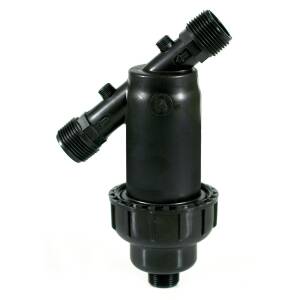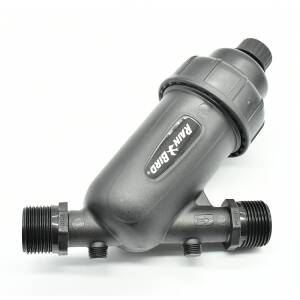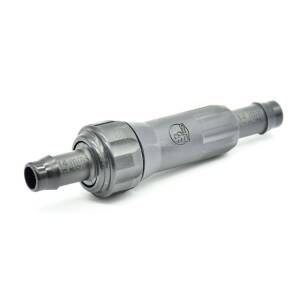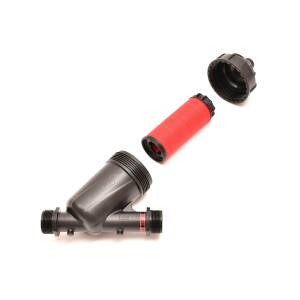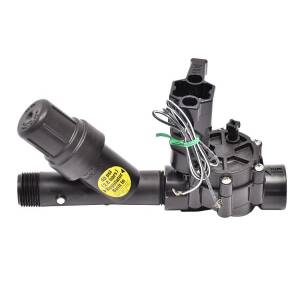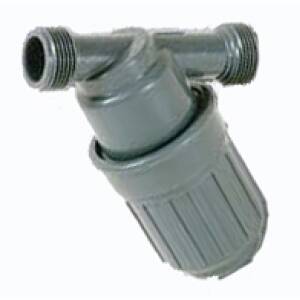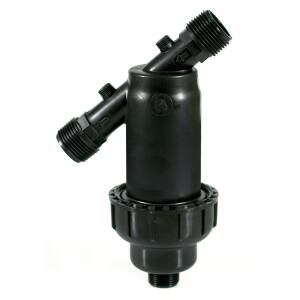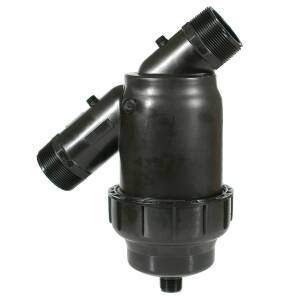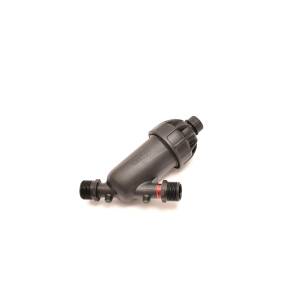




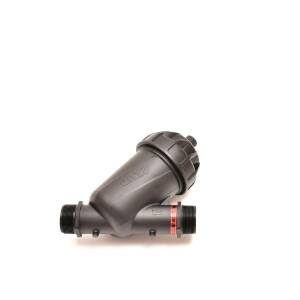
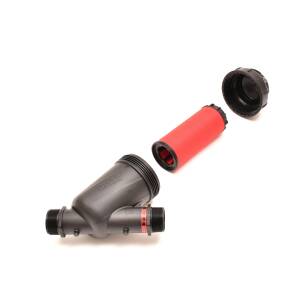
Frequently Asked Questions (FAQs)
A filter removes impurities from the water and prevents blockages in drip tubes or sprayers. This ensures that the water supply remains constant and your plants always receive sufficient water.
The choice of filter depends on the water quality. Strainer filters are suitable for coarse particles, while disc filters filter fine suspended matter.
The frequency of cleaning depends on the water quality. For heavily polluted cistern water, a monthly check is recommended, while for clean tap water, annual maintenance may be sufficient.
Yes! With the Plug&Rain® system, you can easily install the filter yourself. Make sure you use the right size of filter to ensure optimal performance.
We offer high-quality filters from renowned manufacturers, including Rain Bird and Azud, for particularly demanding applications.
That depends on the size and complexity of your irrigation system. A central main filter can often be sufficient, but for particularly fine filtration, several filter stages are useful.
You can order the appropriate filters directly from our site. Be aware of the delivery time to ensure that your system is always optimally protected. Your item will be shipped quickly from our warehouse.
The right choice: filters for every irrigation system
When planning an irrigation system, selecting the right filter is essential. Depending on the water source – whether well, cistern or tap water – the quality can vary. That is why we offer different types of filters in our category:
- Screen filters: remove coarse particles and are particularly suitable for water from wells or cisterns.
- Disc filters: for fine impurities such as algae or fine sand.
Our DVS irrigation planner will help you to determine the right size and type of filter for your irrigation system. Thanks to the Plug&Rain® modular system, you can efficiently combine your components and need to install fewer individual parts.
Types of filter
A water filter is an essential device for ensuring the quality of the water in your irrigation system. There are different types of filters that can be used depending on the application and water source.
- Screen filters: These filters are ideal for removing coarse particles such as sand and dirt. Screen filters are particularly useful if you are using water from a well or cistern water. They are easy to clean and provide a reliable first stage of filtration.
- Disc filters: If you want to remove fine suspended matter such as algae or fine sand from the water, disc filters are the right choice. They offer a higher level of filtration accuracy and are therefore ideal for more demanding applications. Arkal disc filters are particularly noteworthy for their high-quality design, energy-efficient performance, maintenance-friendly features and protection against clogging.
- Sand filters: These filters are particularly effective at removing organic materials and fine particles. They are robust and durable, making them a good choice for larger irrigation systems.
Choosing the right water filter depends on the specific water quality and the requirements of your irrigation system. In our category, you will find a wide selection of filters suitable for various applications. Whether you need a filter for your well, cistern water or tap water, you will find it here.
Installation and maintenance: How to keep your filter efficient
With our Plug&Rain® system, installing a filter is quick and easy. Place the filter in an accessible location to ensure easy maintenance. A clean filter increases the water supply, reduces blockages and ensures consistent control of the irrigation.
Important maintenance points:
- Regular cleaning of the filter inserts to prevent blockages.
- Checking the sorting in the filter housing to ensure optimal performance.
- Replacing worn parts to extend the life of the filter.
- Taking delivery time into account when reordering.
High-quality filters not only improve water quality, but also the efficiency of the entire irrigation system.
 Free Online Irrigation-Planner
Free Online Irrigation-Planner







